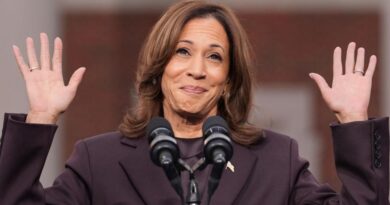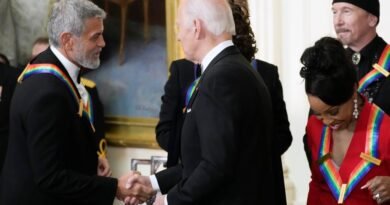This President’s Day, Let’s Reflect on the Lessons from George Washington for Everyone, Including Trump

While it’s uncommon to celebrate his actual birth date of February 22, “Presidents Day” remains officially recognized as Washington’s birthday.
This is appropriate, as every American should take the time to honor our first president.
Washington was a remarkable figure. Hailing from a Virginia aristocratic background, he diligently cultivated his virtues—self-discipline, moderation, and civility—molding both his physical and moral strengths to become the most respected individual in the 13 colonies, and later in the newly formed nation.
In his role as president, he also charted the future direction of the US government. He recognized that he was establishing precedents that would endure, even amid disagreements on the exact nature of our government.
Washington stressed that America was a republic when he admonished those advocating for a monarchy or a glorified presidency.
As we reflect on the aftermath of a contentious presidential election, it’s vital to remember Washington’s legacy.
Indeed, he—and the entire generation of Founders—achieved a level of greatness that their successors have struggled to replicate.
This is due in part to his extraordinary personal attributes and partly to the historical turmoil of his time.
Yet, as his biographer Richard Brookhiser points out, “His life continues to inspire anyone who examines it.”
Furthermore, President Donald Trump still has lessons to learn from our nation’s founding father.
While Trump’s agenda addresses several pressing issues, it also veers into missteps at times.
For instance, appointing RFK Jr. to the Cabinet establishes a precedent that could prove dangerous and detrimental to the nation.
This is something Washington would have never entertained: promoting a morally ambiguous figure to a position of significant authority.
Additionally, his controversial decision to strip protections from statesmen like Mike Pompeo, who risked their lives for him and their country, raises concerns.
Even when Trump is correct in his assessments, he often resorts to impulsive decision-making, as evidenced by his “Mar-a-Gaza” proposal.
This idea is no more fantastical than the usual narratives surrounding “Mideast peace plans,” which often involve imagining the Palestinian Authority led by Mahmoud Abbas or assuming Hamas could govern effectively.
However, announcing such a significant change in policy unexpectedly, without any details and seemingly off-the-cuff, can be perilous.
The proposal’s inherent extremity suggests that Trump’s perspective on the presidency is somewhat influenced by notions of imperial authority.
This undermines the core political lesson that Washington imparted to us.
Trump is not the first president to entertain such notions.
Following Washington and his peers, our country experienced a succession of increasingly lackluster presidents—mediocrity temporarily interrupted by the remarkable leadership of Abraham Lincoln, only for the office to decline once again after his passing.
Yet for every subsequent officeholder, the pivotal question remains: Will you strive to govern as those great leaders did?
Or will the trivialities of everyday politics constrain you?
Trump has demonstrated some willingness to pursue the former.
Consider his brave display of determination in Butler; that took genuine courage.
Moreover, central to his campaign against Harris is the vision that America can enter a new Golden Age through the right policies: a bold ambition and serious intent, despite Trump’s impulsive tendencies.
This ambition is matched by a flurry of impactful and largely effective actions from Day 1 of his second term, and it shows no indication of waning.
What America requires is energy and a broad vision.
What Trump still needs to absorb from Washington is a more measured approach and a calmer demeanor.
We—along with every American of good faith—are rooting for him.



